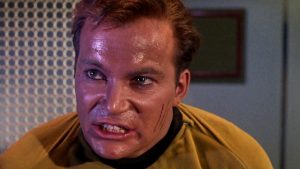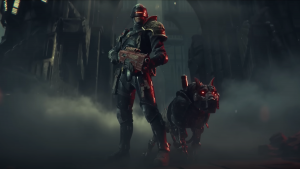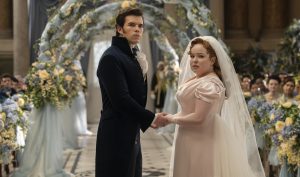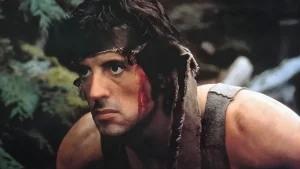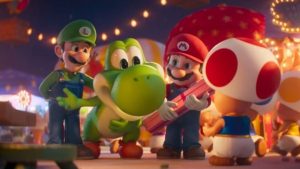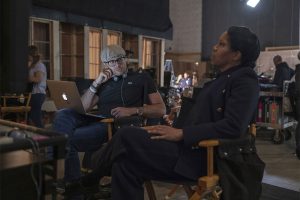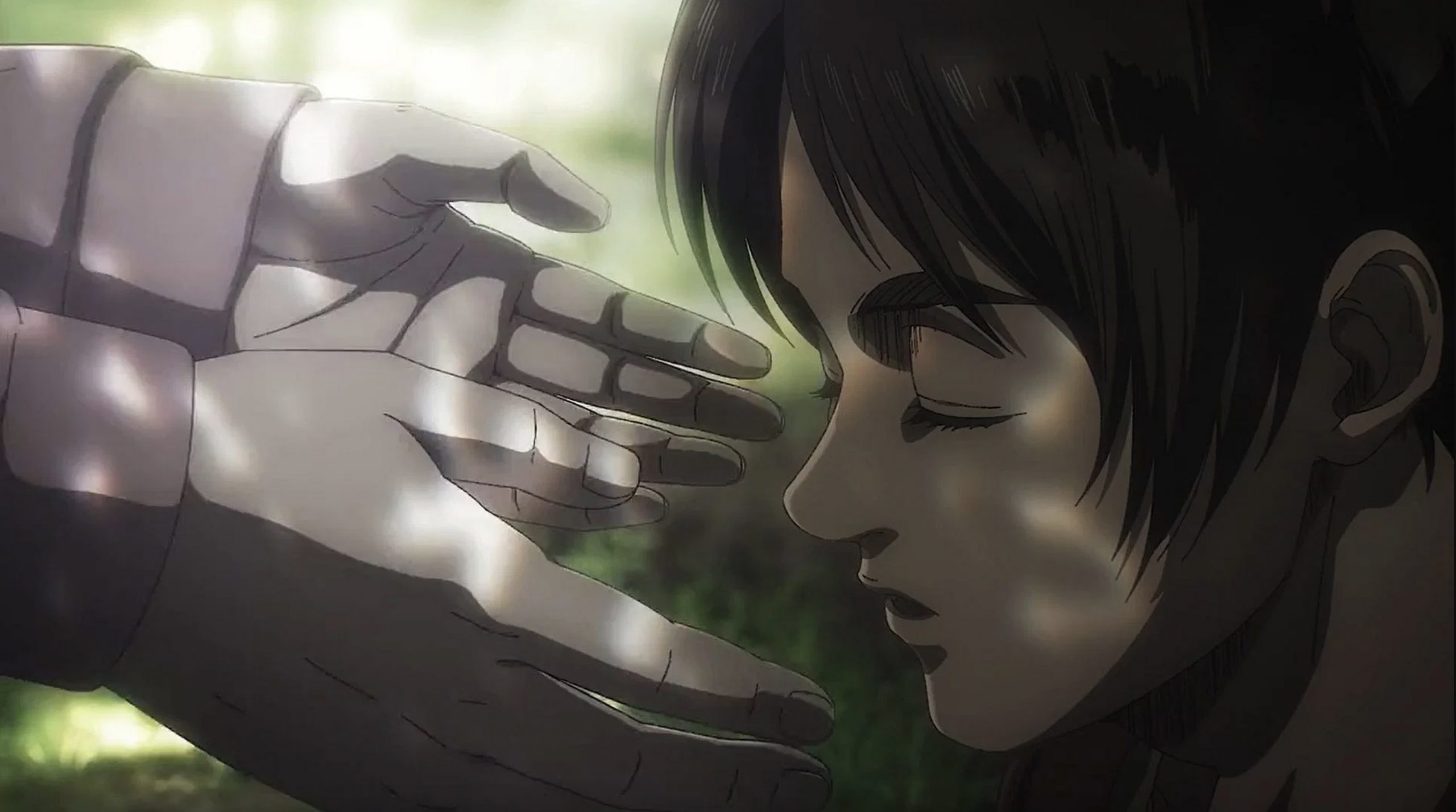
Anime grows more popular with each passing year, yet an endless debate in the community still argues the merits of “subs vs. dubs.” Among some, dubbed anime continues to be viewed as a concession or a way to lure mainstream international audiences into the Japanese medium. It’s always a good idea to experience something in its original language, but dubbing has also proven itself to be its own artform that has the power to complement and improve upon the original series.
Certain anime dubs, such as Cowboy Bebop, Death Note, Fullmetal Alchemist: Brotherhood, and My Hero Academia, have won over fans and are viewed as equals to their original subtitled versions. However, the anime dubbing industry has made tremendous strides over the past decade and Attack on Titan has become the crowning achievement of what’s possible when inspired dubbing meets groundbreaking storytelling. The English dub recently released its final episode, which has solidified Attack on Titan’s status as an evergreen classic.
Attack on Titan: The Final Season – The Final Chapters (Part 2), the anime’s final episode and farewell mission statement, includes some of the English dub’s greatest performances and overall precision sound design. Jessie James Grelle and Trina Nishimura do some of their best work in the series as Armin Arlert and Mikasa Ackerman, as does Bryce Papenbrook, who finally returns as Eren Jaeger. Eren’s final moment with both characters crystalizes a decade of storytelling and evolving relationships. The same is true when Armin and Zeke share a surprising heart-to-heart where Attack on Titan pontificates on the meaning of life amid a global genocide. Emotional moments and well-crafted performances like these contributed towards Attack on Titan’s A+ series finale that generated such excitement that it literally crashed Crunchyroll’s servers.
One of the finale’s most evocative sequences is a brutal soundscape where reckless civilians flee from their fate of being brushed in a Titan stampede. A baby gets carried across the panicking masses in a futile attempt to save this infant. It’s a sad sequence that doesn’t feature any of Attack on Titan’s central characters, yet the dub makes sure that there’s true emotion in these ancillary outsiders and civilians. Attack on Titan’s dub doesn’t belittle any individual element and it understands how everything contributes to the greater whole. It’s a message that’s essential in both Attack on Titan: The Final Season – The Final Chapters (Part 2)’s storytelling and its dub production.
Hajime Isayama’s Attack on Titan has connected with audiences in unprecedented ways. This bleak action and drama series is set in a world where humanity tirelessly fights against giant man-eating monsters – Titans – only for this story to effortlessly evolve and become a more nuanced examination of war, fascism, and humanity’s follies and necessity to vilify. Attack on Titan has made an enormous impression not only in the anime industry, but with television as a whole.
In 2021, Attack on Titan was the most viewed television program in the United States before it was eventually dethroned by Marvel’s The Falcon and the Winter Soldier. The same season was awarded the “most in-demand TV series in the world at 2022’s Global TV Demand Awards. It’s the first non-English language series to ever earn this title, which has previously only been held by The Walking Dead and Game of Thrones. Attack on Titan also currently holds the Guinness World Record for “Most In-Demand Anime TV Show.” All of this puts greater pressure on its English dub to rise to the occasion and do the original justice. Attack on Titan accomplishes this lofty goal with a dub that accentuates and builds upon everything that makes the series so special. Every element, whether it’s the voice acting, ADR direction, and script adaptation, go above and beyond. The entire production dedicates its heart to success.
An anime dub can be dead on arrival if it lacks the right casting and its new voices fail to fit the characters. This may seem obvious, but it’s something that doesn’t always happen and there are plenty of series with rushed casting who take time to find their footing in their respective roles. Titan assembles the perfect cast, some of whom even sound more natural and like an improvement to the original. Mike McFarland, Attack on Titan’s ADR director as well as the voice of Jean Kirstein, strayed outside of Funimation’s (now Crunchyroll) local pool of Texas talent to make sure that the right cast was found.
Bryce Papenbrook, the English voice actor for Titan’s protagonist, Eren Jaeger, is a Los Angeles native and Eren was his first audition for Funimation. McFarland’s ability to cast fresher talent and even first-timers in some instances allow the voice actors to tap into the right mindset that’s otherwise impossible for those who have repeatedly played these types of characters. There’s a four-year time-skip between Attack on Titan’s third and fourth seasons, which Papenbrook takes advantage of and demonstrates how much he’s matured in the role, just like Eren himself. This is something that’s so hard to simulate with a more seasoned performer.
“The change to the character, as an actor, has been extremely interesting to do,” Papenbrook told Den of Geek in 2022. “We had no idea that was coming and Eren is so drastically different to where he was in the show’s first three seasons. Recreating that character after living with him for so long was so fun, interesting, and I love playing this new version of Eren. It’s just so dark and terrifying.”
Jessie James Grelle and Trina Nishimura, Armin and Mikasa’s English voice actors, bring a similar gravitas to their post-time-skip performances where they now sound like adults rather than children. It’s night and day. Attack on Titan actually benefits from the lengthy breaks between its seasons, which can sometimes be detrimental to anime dubs that operate in a tighter time-frame. Characters even get recast because voice actors’ voices drop too much. Titan’s structure and release schedule allow the performers to further age into roles and better embody their characters.
As a result, Attack on Titan’s dubbed voices never feel like actors who are pretending. This quality frequently breaks reality and ruins any suspension of disbelief in dubs, but in Titan the voice actors sound like they’re actually in these scenes, for real, as they become these characters.
“My approach with Gabi,” said Lindsay Siedel, “is that this is a real person. Even if I’m playing a ‘villain’ then I need to keep in mind that they have motivations behind their actions…It’s become clear right from the premiere that she’s a real person who’s complex and has different layers to her.”
Attack on Titan cultivates the perfect cast, but they’d be useless without the right direction and deconstruction of the anime’s characters, themes, and storytelling. Mike McFarland has set new standards with Titan’s dub, which isn’t a fluke. McFarland’s expertise here is the result of a decade of ADR work before Attack on Titan. This experience is crucial, but McFarland comes from ADR directing some of the biggest anime English dubs, including Dragon Ball, One Piece, Case Closed, Fullmetal Alchemist: Brotherhood, Yu Yu Hakusho (as the assistant ADR director) and even the first three Rebuild of Evangelion feature films. McFarland’s expertise with these other coveted dubs, which are all quite diverse in nature, has helped him become the ideal person to guide Attack on Titan’s dub forward. He hits the same heights that he did in these previous series, yet pushes it all even further.
“Capturing the emotional context and the right voice and tone for each scene and character are always on my mind before heading into anything,” McFarland told Den of Geek back when Attack on Titan’s final season first premiered.
There are many anime where voice actors are already fans of the series before the dub begins and they’ve immersed themselves in the manga. McFarland specifically told voice actors like Papenbrook to not read ahead so they don’t have any more knowledge than their respective characters. It’s an approach that’s sometimes a struggle for passionate voice actors, but ultimately worthwhile. It puts performances and acting ahead of fandom, which helps these performers properly tap into their characters’ psychologies.
It’s the type of directing that’s typically done in live-action productions, not voice acting. It’s a strategy that looks beyond a good performance in the given scene, but instead understands this scene’s grander context and what this character is going through on a universal level. McFarland captures this ethos and makes sure that every line of dialogue and scene feel like contributions to a greater whole rather than just individual dialogue that connects in the moment.
Papenbrook got candid on one of Attack on Titan’s more challenging scenes: “At the end of season two, Mikasa and Eren are in the worst possible position. People are dying, the world is kind of in slow motion as these things are closing in on them, and Eren has just watched someone very close to them get eaten. He starts to break down and he has this weird emotion where he’s crying, laughing, and just breaking.”
Papenbrook continued on McFarland’s direction and the emotional toll of this performance. “Being able to find what that was and go through that with him was really, really difficult, but I’m really proud of what we were able to capture in that moment. It definitely stands out as a moment in the series that’s just really special. I always think of that particular moment in the show as being one of the most intense and interesting. As an actor, it’s some of the work that I’m the most proud of…I felt that scene for a number of days after leaving the booth.”
Outside of voice acting and direction, a strong and faithful script is the final ingredient that’s necessary for an anime dub’s success. It’s crucial to not just present an emotional, well-acted dub, but one that doesn’t make unnecessary changes to the writing for the sake of simplicity or matching characters’ mouth-flaps. Attack on Titan’s English scripts feel more natural and appropriate than the translated subtitled version. It’s the best way to experience the show’s dialogue and grander themes, especially when characters get emotional and the series grows more complicated. In season four, Attack on Titan expands its scope, story, and characters as its subject matter grows more complex with a layered focus on politics and war.
“I hold each character’s individual performance, the overall storytelling, all of those things are a great responsibility to me,” revealed McFarland as he elaborates on this process. “As such, I want to be able to have fandoms from all over the world to be able to meet together with interpreters who can get excited about the show, talk about their favorite moments and lines, and have nothing lost in translation or adaptation. Everyone has seen the same thing. That’s really important to me. The creator’s vision—the mangaka’s vision—gets exhibited to the audience from the get-go.”
Attack on Titan’s first season is admittedly a little rough with some of its translation choices, but it takes stock of this and tops itself in the subsequent seasons. The dub acknowledges and course-corrects these early concessions. It fixes things instead of doubling down on what was wrong, merely for the sake of consistency. Attack on Titan’s script isn’t afraid to mix things up if it’s for the greater good and in the anime’s best interests.
For instance, Levi Ackerman is one of Attack on Titan’s fiercest monster slayers and the dub allows him to talk down to the Titans more. This helps reflect how much he’s personally invested in this war and the hatred that he feels for these monsters, while he’s more detached in the original. Some prefer the more disconnected version of Levi and it’s ultimately up to interpretation. However, the dub’s version seems fitting and Levi would have a growing animosity for these beasts who have ruined his life. Levi increasingly views the Titans’ extermination as a karmic game that he must play. His pleasure in their destruction makes a lot of sense.
The dub takes similar liberties in some of Attack on Titan’s bigger reveals, which also pay off in its favor. Season two’s infamous sequence with Reiner and Bertholdt in its sixth episode, “Warrior,” hits much harder in the dub. “We could live a thousand years and still never know peace,” is such a beautiful economy of language and emotion, for instance, that’s absent in the original version. Erwin’s final speech in season three is also more powerful in the English dub because the script is careful to properly interpret Attack on Titan’s political and anti-war subtext. It’s the difference between an accurate dub – which are plentiful – and a superior dub that understands its source material inside and out beyond the page.
The other major reason that Attack on Titan’s dub resonates so strongly and eclipses its peers is because it’s readily available to the masses and not restricted to a niche service. Attack on Titan’s dub is available on Crunchyroll, which is expected, as well as the non-anime-centric streaming service, Hulu. However, the entire series has also aired on television courtesy of Adult Swim. It’s a rare example of a dubbed anime series that’s run its entire course on North American television and could be enjoyed without any additional streamers.
Even now, the entire series can be watched in English on Adult Swim’s website with a basic cable subscription, rather than being locked away as a Crunchyroll exclusive. It’s this push to get Attack on Titan’s dub to the public, as easily as possible, that’s helped it become such essential viewing. It’s all-too fitting that the anime’s final season just won the Astra Award for “Best Streaming Animated Series” at the Astra Creative Arts TV Awards, beating the likes of Harley Quinn, Star Trek: Lower Decks, and other beloved American cartoons.
The success of Attack on Titan’s English dub will be incredibly hard to match, let alone top. It’s a near-perfect piece of storytelling that started with something special and actively got better throughout its ten-year-long run. There are literally bronze statues in Japan to celebrate Attack on Titan’s success and there’s never been a better time to check out all 89 episodes in English, whether you’ve repeatedly binged the series or are experiencing it for the very first time.
Attack on Titan is available to stream on Crunchyroll, Hulu, and Adult Swim.
The post Attack on Titan is The Best Anime Dub of All Time appeared first on Den of Geek.
